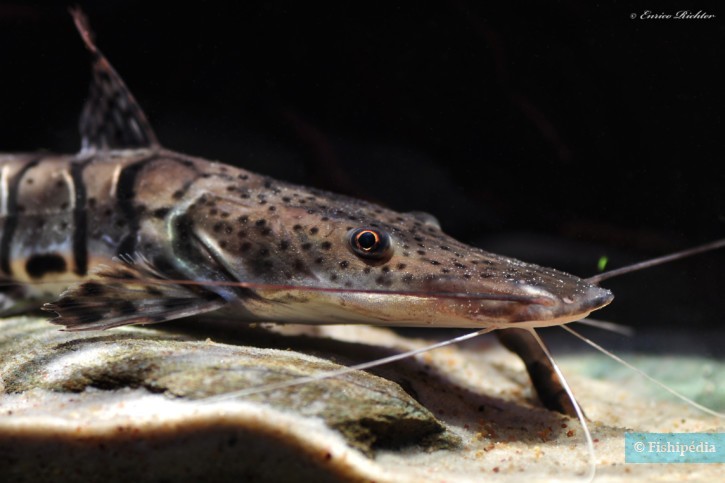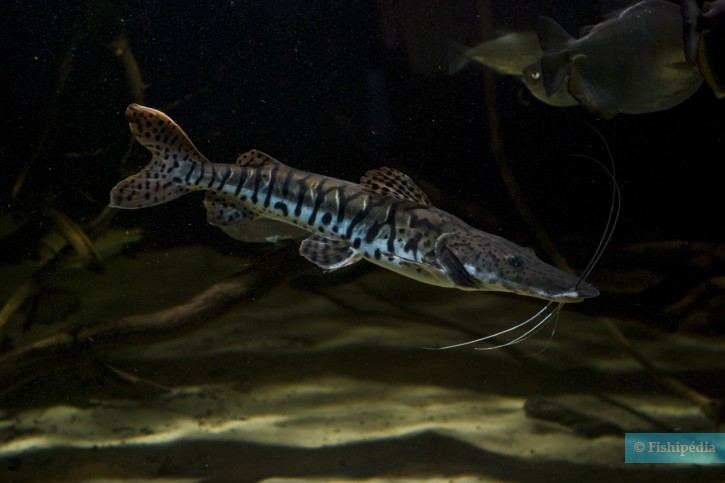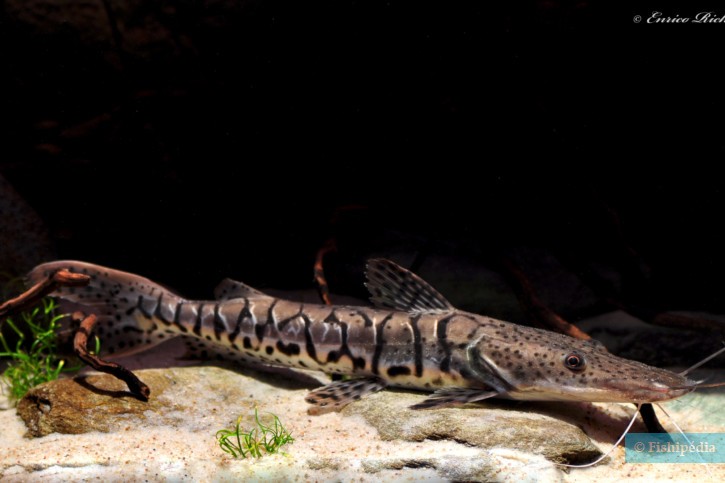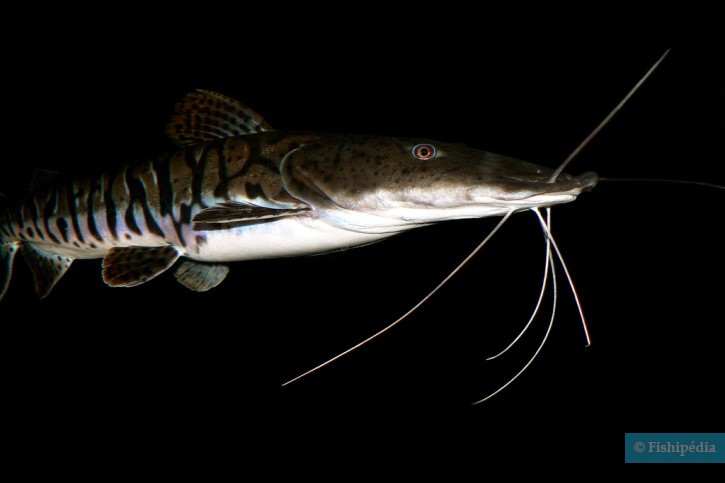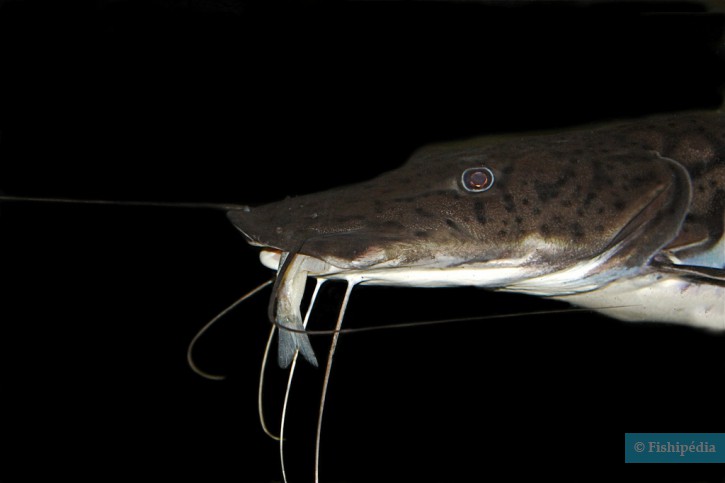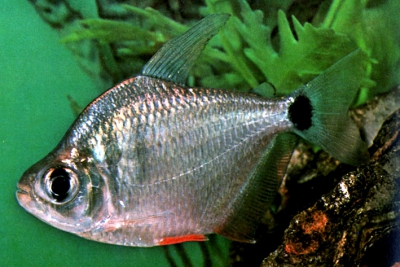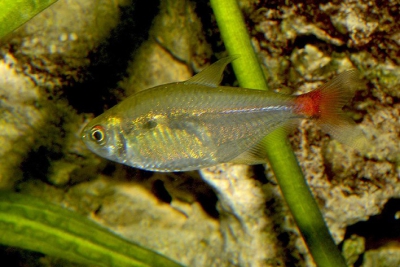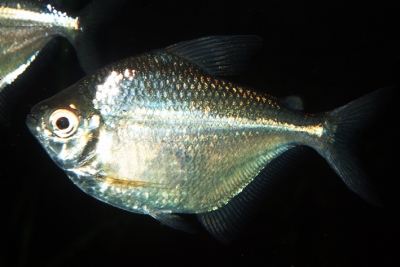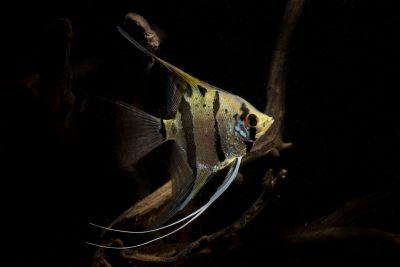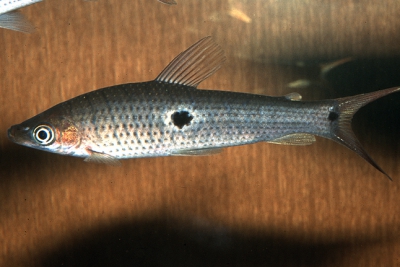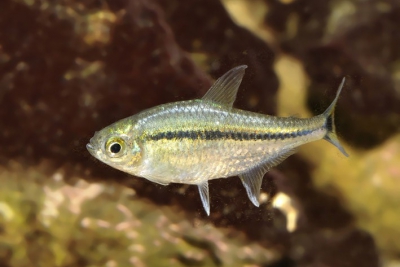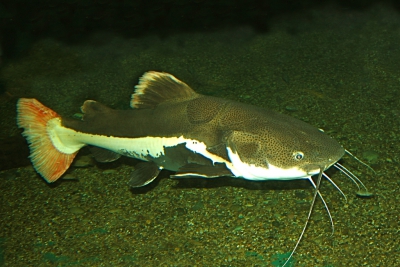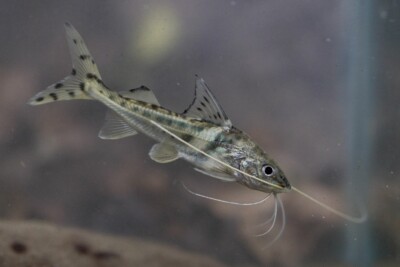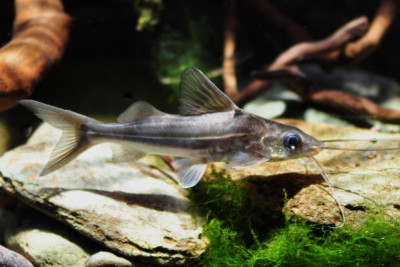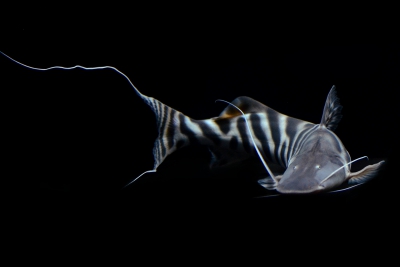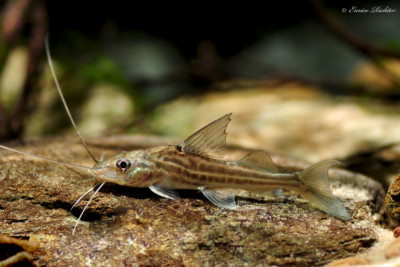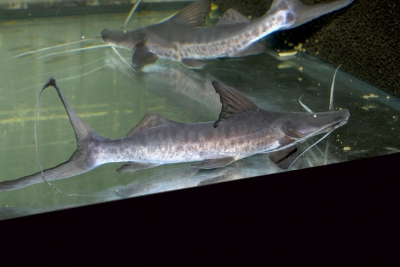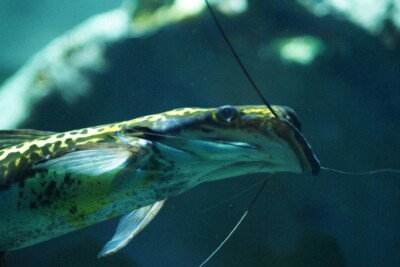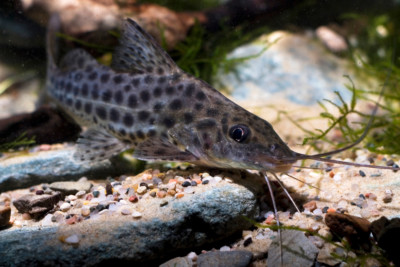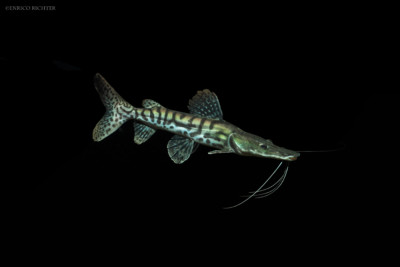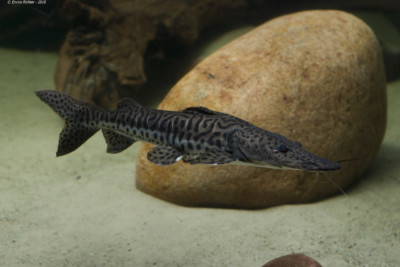Pseudoplatystoma fasciatum
| Scientific name | Pseudoplatystoma fasciatum |
|---|---|
| Descriptor | Linnaeus |
| Year of description | 1766 |
| IUCN category (World) | LC |
| Family | Pimelodidae |
| Genus | Pseudoplatystoma |
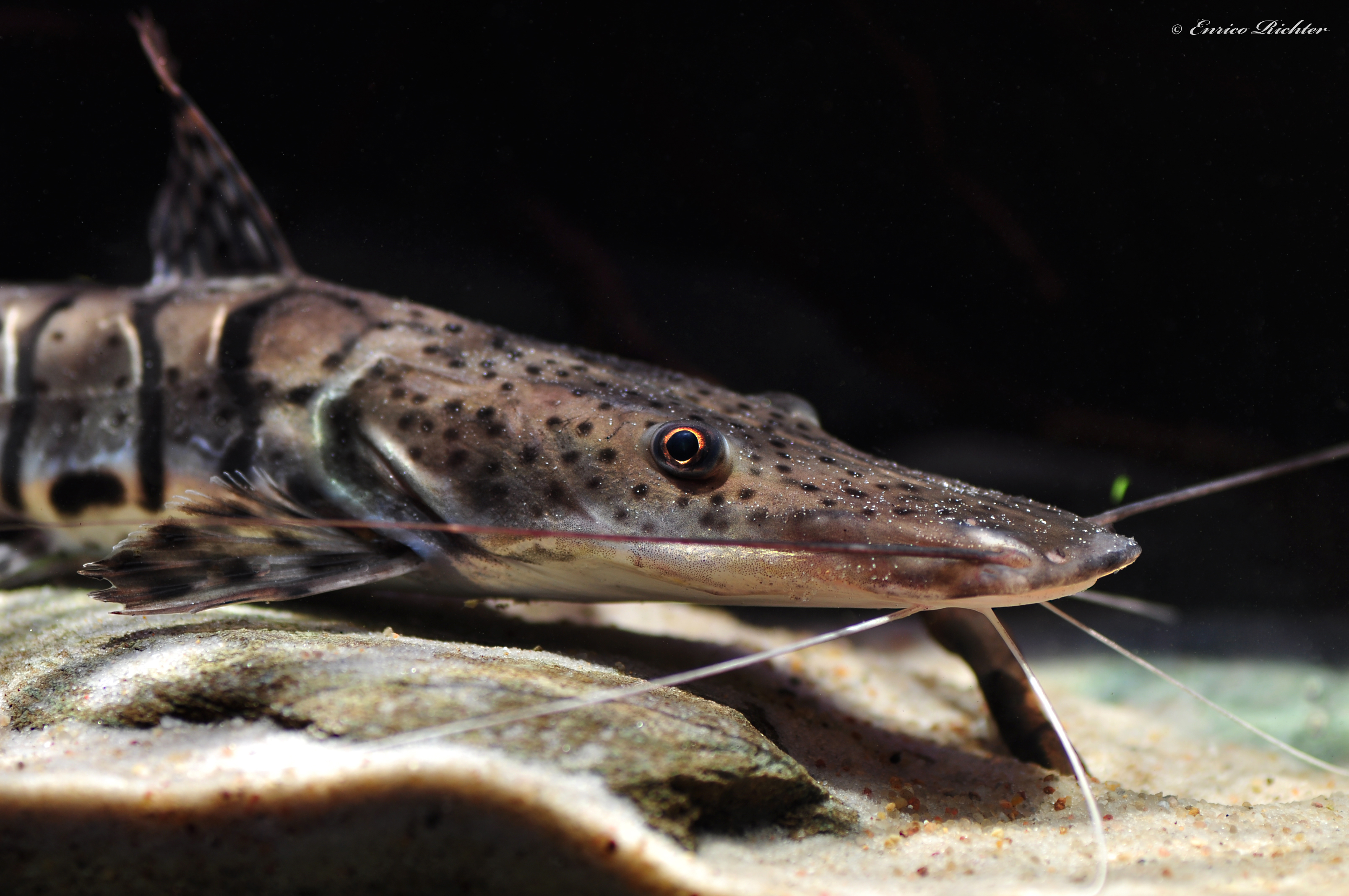

Introduction
Pseudoplatystoma fasciatum is a fresh water fish.
This sheet is currently being prepared. The texts currently proposed come from our data model or are being drafted. To request priority for this content, you can write to us HERE.
Who is it?
Morphology
-
Type
-
Average size80 cm
-
Maximum size90 cm
-
Longevity12 year
-
Patterntasks
-
Type
-
Average size80 cm
-
Maximum size90 cm
-
Longevity12 year
-
Patterntasks
How to recognize This fish ?
This fish has the particularity to possess several pairs of barbels, which allow him to search the bottom and to detect the food thus moved.
Pseudoplatystoma fasciatum measures between 80 and 90 cm. This fish is tricolore with a predominantly argent, noir and gris body. The also has noir tasks.
Behaviour & Life cycle
-
dietcarnivorous
-
Sociabilityliving in a group or alone
-
territorialNo
-
Way of livingdiurnal
Pseudoplatystoma fasciatum hunts in the stalk and is one of the predators of its biotope. Opportunistic, it does not hesitate to attack any smaller animal nearby.
Pseudoplatystoma fasciatum is a fish living in a group or alone naturally found near the bottom. This species is carnivorous .
Although Pseudoplatystoma fasciatum is non-territorial, it is sometimes aggressive towards other species.
Reproduction
-
Reproductiondont le mode de reproduction est encore inconnu
Pseudoplatystoma fasciatum is a fish dont le mode de reproduction est encore inconnu.
Harmless species
This species does not represent any particular threats to humans when encountered in its natural environment.
Origin and distribution
What is its habitat?
Natural environment characteristics
-
Temperature24 - 28 °C
-
pH (acidity)6 - 8
-
gh (hardness)4 - 30
-
FlowMedium and Slow
Biotope presentation
Pseudoplatystoma fasciatum is most often found at a depth between 0m and 5m. However, it is not impossible to find this species at other depths. This animal evolves in areas characterized by a strong presence of vegetation (aquatic and marsh plants, decaying organic matter, roots...).
This species lives near large roots, in which it can find refuge in case of danger. This type of habitat is often found not far from the banks.
Species of the same biotope
Fishkeeping
Not recommended
We do not recommend keeping this species in an aquarium. It has unpredictable needs which, if not met, generate significant stress, potentially leading to a shorter life expectancy, an interruption of its growth or the development of pathogens.
To go further
Sources & Contributions
Participation & Validation
The Fishipedia team and specialist contributors are committed to providing high-quality content. However, although the information comes from scientific sources or testimonials from specialists, the cards may contain inaccuracies.

Benoit Chartrer
Translation
Translation done with the valuable contribution of our translators, who make this information available to a wider audience. We sincerely thank them for their commitment.
In collaboration with : Estudios Amazónicos - Urku
Bibliographic references
Biologie de Pseudoplatystoma fasciatum et P. tigrinum (Teleostei: Pimelodidae) dans le bassin du Mamoré (Amazonie Bolivienne) - Gérard Loubens - Jacques Panfili - Ichthyol. Explor. Freshwaters - 2000.
Taxonomy of the catfish genus Pseudoplatystoma Bleeker (Siluriformes: Pimelodidae) with recognition of eight species - Brooks M. Burr - URIEL ANGEL BUITRAGO–SUÁREZ - ZOOTAXA - 2007.
Scientific partners
Species of the same family
Same genus
Species of the same biotope
